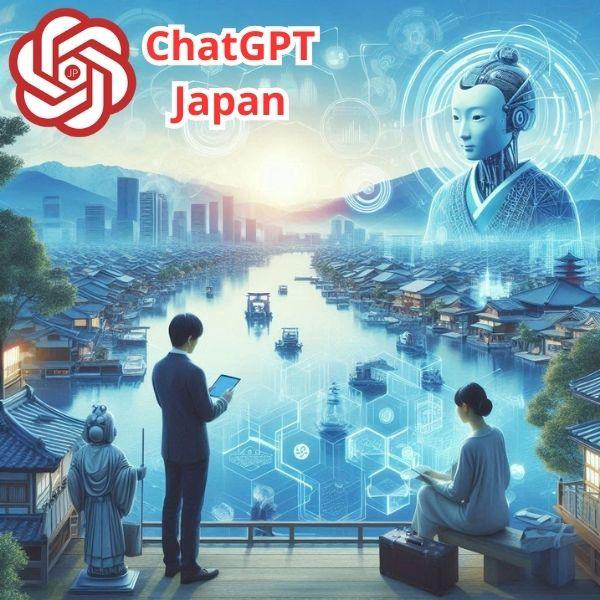Introduction
The hospitality industry thrives on customer satisfaction, operational efficiency, and attention to detail. With advancements in artificial intelligence, tools like chatgpt 日本語 are transforming how businesses in Japan approach these aspects. From improving guest experiences to streamlining internal processes, ChatGPT is proving to be an invaluable resource for hotels, restaurants, and travel agencies across the country.
This essay explores how ChatGPT can be integrated into Japan’s hospitality sector, highlighting its applications, benefits, and potential limitations while offering insights into its future impact.
Enhancing Customer Service
1. Real-Time Multilingual Communication
Japan is a global tourist destination, attracting visitors from diverse linguistic backgrounds. ChatGPT’s chatgpt 日本語 capabilities enable seamless communication:
- Translation Assistance: ChatGPT helps staff translate conversations between Japanese and other languages, ensuring clear communication with international guests.
- 24/7 Chat Support: Hotels and restaurants can deploy ChatGPT-powered chatbots to handle guest inquiries at any hour, improving convenience.
By breaking language barriers, ChatGPT enhances the hospitality industry’s ability to cater to a global audience.
2. Personalized Recommendations
One of ChatGPT’s strengths is its ability to analyze guest preferences:
- Tailored Dining Suggestions: Restaurants can use ChatGPT to recommend dishes based on dietary restrictions or past preferences.
- Customized Travel Itineraries: Hotels can offer guests personalized activity suggestions, from cultural tours to nearby attractions.
This personalized approach fosters customer satisfaction and loyalty.
Streamlining Operations
1. Automating Reservations and Bookings
Managing reservations is a critical part of hospitality operations. ChatGPT can:
- Process Bookings Efficiently: Chatbots powered by chatgpt 日本語 can handle reservation requests, check availability, and confirm bookings instantly.
- Reduce Human Errors: Automation minimizes double bookings and other common mistakes.
This ensures a smoother experience for both staff and guests.
2. Internal Training and Support
ChatGPT can also assist in employee training:
- Language Learning for Staff: Employees can use ChatGPT to improve their English or other languages, enhancing their ability to serve international guests.
- On-Demand Knowledge Access: Staff can rely on ChatGPT to answer operational questions, such as menu details or hotel policies, in real-time.
This helps maintain high service standards while reducing the need for constant managerial oversight.
Marketing and Guest Engagement
1. Creating Engaging Content
Marketing is vital for attracting guests, and ChatGPT excels at content creation:
- Social Media Management: ChatGPT can generate engaging posts in Japanese and other languages, promoting seasonal offers or events.
- Website Content: Businesses can use chatgpt 日本語 to create blogs, FAQs, and promotional materials that appeal to their target audience.
Effective communication boosts visibility and draws more guests to hotels and restaurants.
2. Gathering Guest Feedback
Understanding guest experiences is crucial for improvement. ChatGPT can:
- Analyze Reviews: By processing online reviews, ChatGPT identifies common trends and areas needing attention.
- Conduct Surveys: AI-powered surveys can collect feedback in a conversational format, encouraging more responses.
This data-driven approach empowers businesses to make informed decisions.
Challenges and Limitations
1. Dependence on Accuracy
While ChatGPT is highly advanced, it may sometimes produce errors or misunderstand context. In the hospitality industry, where precision is crucial, this can lead to:
- Miscommunication with guests.
- Incorrect recommendations or information.
Businesses must implement human oversight to mitigate these risks.
2. Balancing Technology with Human Interaction
The hospitality industry is built on personal connections. Over-reliance on chatgpt 日本語 may diminish the warmth and empathy of human interaction. Guests often value the personal touch that AI cannot replicate, such as a heartfelt welcome or genuine concern.
Striking a balance between AI and human engagement is essential.
Future Potential of ChatGPT in Hospitality
1. Advanced Personalization
As AI technology evolves, ChatGPT could offer even deeper personalization:
- Predicting guest preferences based on past behavior.
- Providing dynamic solutions to meet individual needs in real-time.
This level of customization will further enhance guest experiences.
2. Integration with IoT and Smart Devices
Hotels and restaurants increasingly use Internet of Things (IoT) devices. ChatGPT could integrate seamlessly with these systems:
- Smart Rooms: Guests could use voice commands to request room services via ChatGPT.
- Automated Kitchens: ChatGPT could assist in managing kitchen orders and inventory.
These innovations would redefine efficiency and convenience in the industry.
Contact
Company name: ChatGPT Japan
My page: https://chatgptjapan.com/
City: Chuo City, Tokyo
Country: Japan
Postal code: 104-0061
Phone number: +8164-221-1078
Email: chatgptjapan.com@gmail.com
Google Map: 7-chōme-14-13 Ginza, Chuo City, Tokyo 104-0061
#chatgpt日本語, #チャットgpt無料, #チャットgpt, #チャットgpt日本語, #chatgpt




